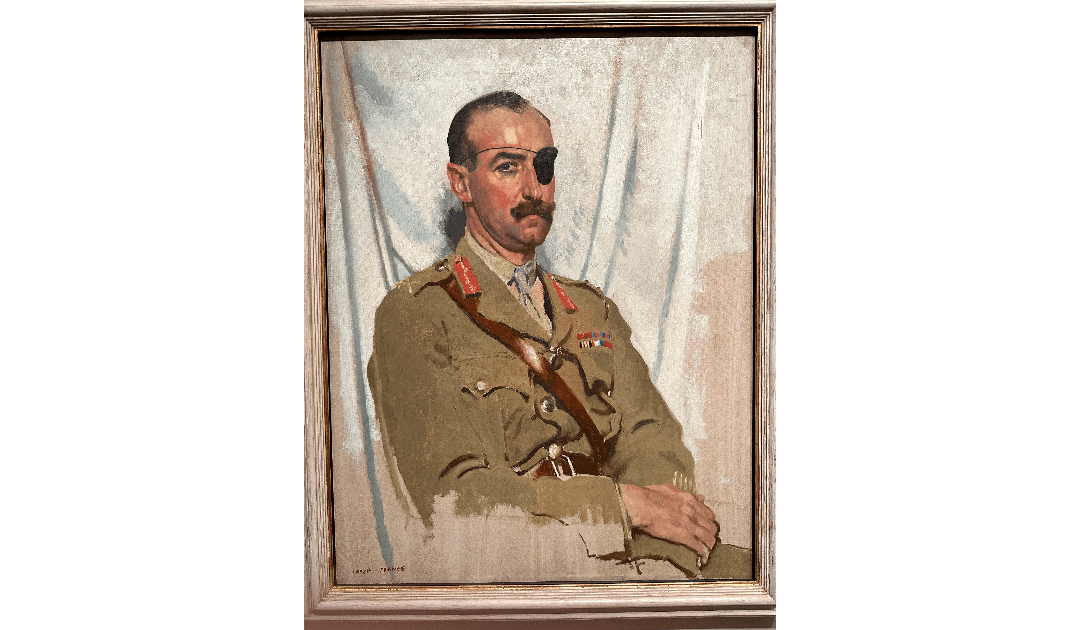“Brevity is the soul of wit.” Shakespeare wrote that line in Hamlet. Claire and I visited the National Portrait Gallery yesterday. This painting of Sir Adrien Carton de Wiart caught my attention. I think he was the inspiration for a severely battle scarred officer in Pat Barker’s magnificent Regeneration trilogy. I may be wrong, but I think the scene concerned the unnecessary losses at the Battle of Sambre. The war poet Wilfred Owen was one of those losses.
Carton de Wiart was breveted twice, once to the rank of major, and then to lieutenant-colonel. I looked brevet up and it means “a former type of military commission conferred especially for outstanding service, by which an officer was promoted to a higher rank, without the corresponding pay.” It comes from Old French brievet meaning little letter. Brevity spouts from the same source.
Carton de Wiart survived two plane crashes and three wars. He fought in the Boer War, then both world wars. He was shot through the skull and ankle at the Battle of the Somme, through the hip at the Battle of Passchendaele, through the leg at Cambrai, and through the ear at Arras. It’s hardly surprising that he was awarded the Victoria Cross. He was born in Brussels to an aristocratic family. He was sent to school in England, and then won a place at Balliol College Oxford. He left Oxford to join the British Army at the outbreak of the Boer War.
Believe it or not, when he was awarded the Victoria Cross, he said “Frankly, I had enjoyed the war!” He is the subject of the 2022 song “The Unkillable Soldier” on the Swedish heavy metal group Sabaton’s album, The War to End all Wars.
I think the first book I read on the art of writing emphasised brevity. It used Ian Fleming as the perfect example of an author who didn’t waste words. Keep sentences short was the advice. I shall keep brevity in mind when writing the fifth book of the Sir Anthony Standen Adventures.

